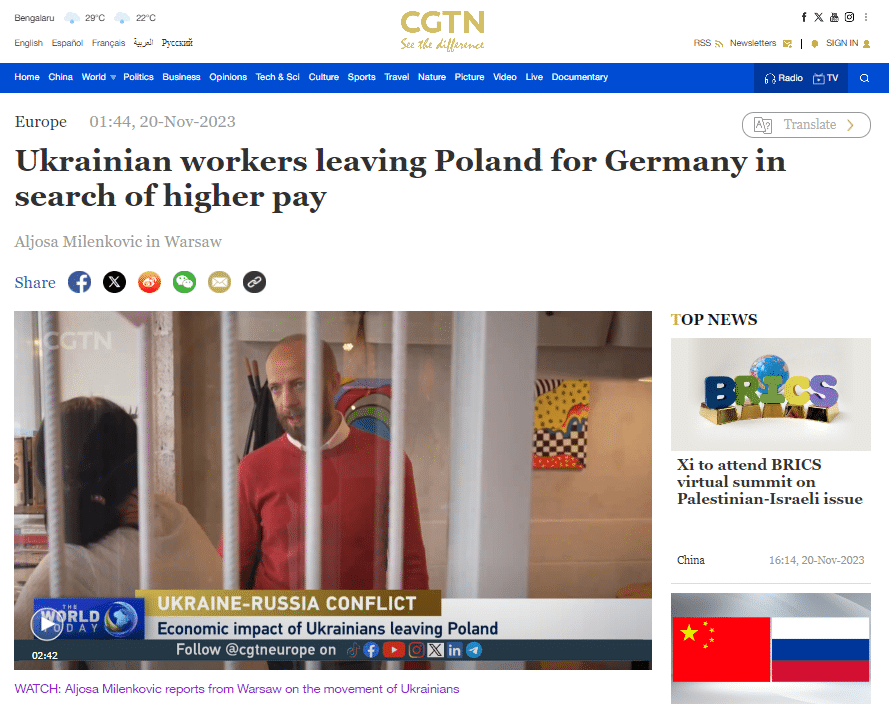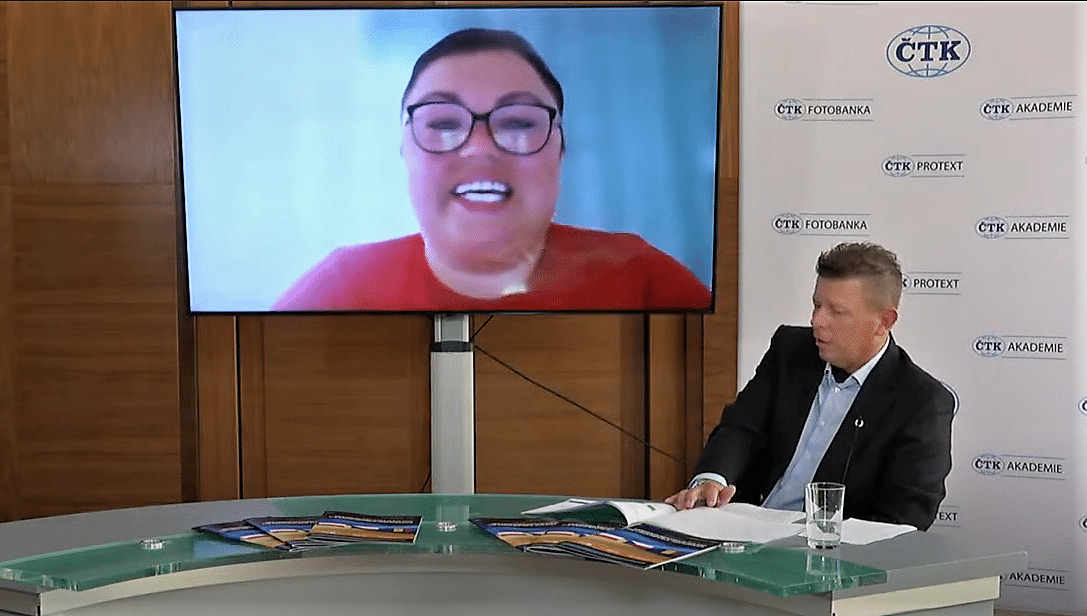According to new data, Ukrainians are leaving Poland for other European nations, particularly Germany, in search of a better quality of life and higher pay. That has prompted concern over the impact on the Polish economy, which remains highly reliant on Ukrainian migrant labor.
In a small coffee shop close to the Warsaw’s business district, CGTN Europe sat down with its Ukrainian owner Oleh Yarovyi. The businessman, in his thirties, came to Poland with his wife almost a decade ago, deciding to open up a coffee shop in the Polish capital.
Over time, the business grew into a chain, with 17 coffee shops and restaurants across Poland and Czechia, which now employs more than 100 people. “And the overwhelming majority of them are from Ukraine,” he says.
However, some of them have recently decided that they don’t want to stay in Poland – or go back to Ukraine. Instead, they’d rather look for a better future further westwards.
“Last year, 10 percent of our employees told us that they wanted to go somewhere else.” Oleh explains. “They went west to work to make a permanent change in their place of residence. It wasn’t too catastrophic.
He says that some ended up returning to Ukraine, “probably a higher number than those who went to Germany or Canada.” However, recent figures indicate that Poland is fast starting to lose its ability to rely on cheap labor from across the border.
That’s despite the fact that the Ukraine conflict saw Poland become temporary host to the world’s highest number of displaced Ukrainians. According to a recent study by leading Polish employment agency EWL and the University of Warsaw, more than 4 million Ukrainians have crossed the Polish-Ukrainian border since February 2022. That’s on top of the 2 million who were already working there, filling the workforce void left by millions of Poles who left for western EU countries.
But now, hundreds of thousands of Ukrainians are following in the steps of their Polish counterparts, departing for the west, lured by higher salaries and better benefits. Around 350,000 left Poland in the first six months of 2023, with around 150,000 of them ending up in Germany, which during that time, saw its total Ukrainian immigrant population increase by 410,000.
The key reason for the mass exodus, says Michalina Sielewicz, the director of economic development at Polish employment agency EWL, is financial. “There are higher pay rates. Then there’s the access to a benefits system that, from the perspective of financial gain, is much better. Obviously, money is the main influence,” he says. “But I think curiosity is an element as well.”
The EWL’s study also found that a developing network of Ukrainians in Germany was helping the migration shift, while better medical services and compulsory German language classes organized by the government for refugees was helping Ukrainians integrate. The Polish government also offers free language training to refugees but it is not compulsory, the result being that Ukrainians were integrating better into German than Polish society, the report said.
If the trend continues, the Polish economy could find itself in a difficult position, with an aging population and an already growing labor shortage. As well as losing valuable workers, the country would also lose out on those Ukrainians who are spending their salaries, which helps to boost local economies in towns and cities across the country.




